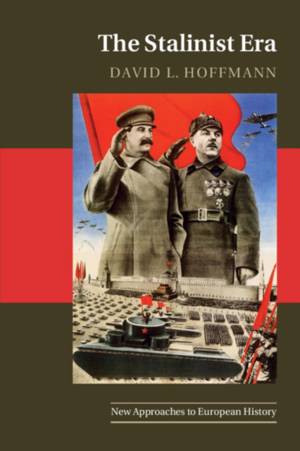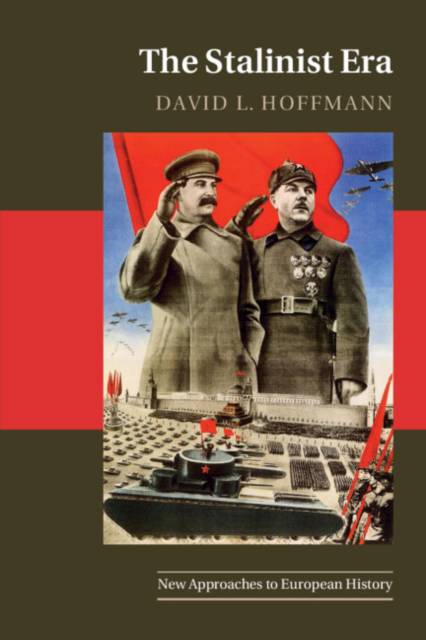
- Afhalen na 1 uur in een winkel met voorraad
- Gratis thuislevering in België vanaf € 30
- Ruim aanbod met 7 miljoen producten
- Afhalen na 1 uur in een winkel met voorraad
- Gratis thuislevering in België vanaf € 30
- Ruim aanbod met 7 miljoen producten
Zoeken
€ 26,95
+ 53 punten
Uitvoering
Omschrijving
Placing Stalinism in its international context, David L. Hoffmann presents a new interpretation of Soviet state intervention and violence. Many 'Stalinist' practices - the state-run economy, surveillance, propaganda campaigns, and the use of concentration camps - did not originate with Stalin or even in Russia, but were instead tools of governance that became widespread throughout Europe during the First World War. The Soviet system was formed at this moment of total war, and wartime practices of mobilization and state violence became building blocks of the new political order. Communist Party leaders in turn used these practices ruthlessly to pursue their ideological agenda of economic and social transformation. Synthesizing new research on Stalinist collectivization, industrialization, cultural affairs, gender roles, nationality policies, the Second World War, and the Cold War, Hoffmann provides a succinct account of this pivotal period in world history.
Specificaties
Betrokkenen
- Auteur(s):
- Uitgeverij:
Inhoud
- Aantal bladzijden:
- 216
- Taal:
- Engels
- Reeks:
- Reeksnummer:
- nr. 57
Eigenschappen
- Productcode (EAN):
- 9780521188371
- Verschijningsdatum:
- 15/11/2018
- Uitvoering:
- Paperback
- Formaat:
- Trade paperback (VS)
- Afmetingen:
- 229 mm x 155 mm
- Gewicht:
- 317 g

Alleen bij Standaard Boekhandel
+ 53 punten op je klantenkaart van Standaard Boekhandel
Beoordelingen
We publiceren alleen reviews die voldoen aan de voorwaarden voor reviews. Bekijk onze voorwaarden voor reviews.











